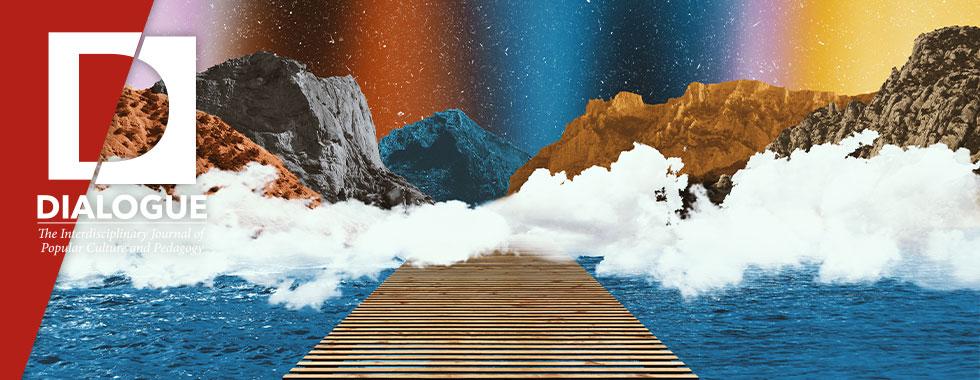Document Type
Article
Abstract
In Teaching to Transgress: Education as the Practice of Freedom, bell hooks writes that “to engage in dialogue is one of the simplest ways we can begin as teachers, scholars, and critical thinkers to cross boundaries.” Hence, this paper explores, through narrative dialogue, teacher and student perspectives on the pedagogical impact of the global pandemic on the process of engaging with and learning about media literacy. By naming and narrating teacher and student experiences and perspectives from a course on gender and pop culture that took place during the Spring 2020 semester, the paper aims to demonstrate the way that crisis can both expose certain pedagogical issues as well as generate pedagogical opportunities. It narrates and reflects on the ways in which moments of crisis create opportunities for educators to think differently and more expansively about pedagogy by demonstrating its occurrence in one course, and how the combination of factors specific to the crisis required both the instructor and their students to re-situate themselves in relation to the course content. Through a teacher-student meditation, the paper argues that media literacy is a subject that leads to increased pedagogical deliberation and experimentation in the study of pop culture. It suggests that the experiences described might provide wisdom for further pedagogical development on the subject of media literacy, more broadly, positioning and inviting educators and students to engage in dialogue in order to shift paradigms according to the moment of crisis at hand. The broader aim of the article is to encourage educators to follow the example of the students in the gender and pop culture course who felt empowered to create innovative and social-justice-focused media literacy projects as a way of exercising agency, and of confronting and dealing with the harsh realities of global circumstances.
Recommended Citation
Lowell Mason, Jessica and Imobhio, Ebehitale
(2021)
"Media Literacy, Education, and a Global Pandemic: Lessons Learned in a Gender and Pop Culture Classroom,"
Dialogue: The Interdisciplinary Journal of Popular Culture and Pedagogy: Vol. 8:
Iss.
3, Article 4.
Available at:
https://digitalcommons.unl.edu/dialogue/vol8/iss3/4
Included in
American Popular Culture Commons, Community-Based Learning Commons, Critical and Cultural Studies Commons, Curriculum and Social Inquiry Commons, Educational Sociology Commons, Gender and Sexuality Commons, Gender, Race, Sexuality, and Ethnicity in Communication Commons, Information Literacy Commons, Race, Ethnicity and Post-Colonial Studies Commons, Scholarship of Teaching and Learning Commons, Social Justice Commons, Women's Studies Commons

